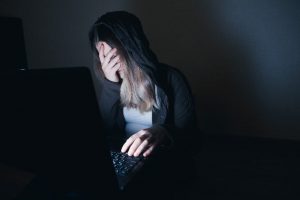
“WE MUST NOT confuse dissent with disloyalty. We must remember always that accusation is not proof, and that conviction depends upon evidence and due process of law. We will not walk in fear, one of another. We will not be driven by fear into an age of unreason, if we dig deep in our history and our doctrine, and remember that we are not descended from fearful men. Not from men who feared to write, to speak, to associate, and to defend the causes that were, for the moment, unpopular. … We can deny our heritage and our history, but we cannot escape responsibility for the result.”
The quote above is from See It Now anchor Edward R. Murrow, spoken in a March 1954 “Report on Senator Joseph R. McCarthy.” At the time, McCarthy was waging a war on suspected Communists and homosexuals, tearing through Hollywood, the Truman and Eisenhower administrations, and the U.S. Army in his search for anti-American spies. Murrow’s “Report” used footage of McCarthy’s speeches to prove that his witch hunt was nothing more than paranoia-based demagoguery. By the end of that year, Congress had censured the Wisconsin senator.
Today, perhaps more than at any other time since the Red Scare, Murrow’s short closing statement resonates in the U.S. In 2016, Donald Trump has achieved the Republican nomination for presidency due to nothing but his unrestrained bigotry. People who offer valid criticisms of the U.S. government — or suggest that the nation is not the greatest country in the world — find themselves dubbed un-American. Cultural critics receive death threats from fans of the entertainment media they analyze. And those who dare to protest problematic power dynamics — simply by requesting the bare minimum of respect — are asked every day to prove that they do not hate the privileged, even as they are murdered by them.
So let’s get this straight, once and for all. Criticism does not equal contempt, in the same way that dissent is not disloyalty.
If we love something and want to see it thrive, we must be willing to call out its problems. Yes, flawed institutions survive for countless years, but that does not mean that they will not operate better — more efficiently and more fairly — once their errors have been corrected. Likewise, entire groups — and even some marginalized individuals — may thrive under those systems, but that does not mean that everyone can, nor does it mean that they cannot be improved.
Progress requires change, and nothing changes without a struggle. Some sort of fight — whether peaceful protest or all-out war — has preceded every major step forward in U.S. history, from the American Revolution to marriage equality. In 1849, Frederick Douglass wrote:
If there is no struggle there is no progress. Those who profess to favor freedom, and yet depreciate agitation, are men who want crops without plowing up the ground. They want rain without thunder and lightning. They want the ocean without the awful roar of its many waters. This struggle may be a moral one; or it may be a physical one; or it may be both moral and physical; but it must be a struggle. Power concedes nothing without demand. It never did and it never will.
No progressive movement is completed by a single revolution. Laws may be written, and policies changed, but those are paper and words, not demonstrative evidence of equality. And so, activists must speak out against injustices, and push for continual revision of the institutions in which they exist.
It’s important to remember that you can love something and criticize it at the same time. Calling out a film’s problematic representation of a marginalized group does not necessarily mean you didn’t enjoy the movie, and it doesn’t mean others shouldn’t enjoy it. Rather, it means that the film has a flaw, which is representative of — and which you may use to cast light on — a larger problem in society.
Criticism also does not equal a lack of support. Saying that police brutality — particularly against the black community — is a problem in need of a solution is not a call for violence against law enforcement. Acknowledging the inherent worth of black lives is not the divisive element in this discussion, but pretending that being pro-black and anti-brutality makes a person anti-cop is.
Similarly, believing that we should engage in fewer military actions does not mean I am happy when U.S. troops die in combat. Just the opposite, in fact. I want to reduce our military movements because I want poor kids to stop dying in rich men’s wars, and I want them to stop coming home with permanent — and often invisible — wounds.
Because the only thing necessary for the triumph of evil is for good folks to do nothing, we must drag inequalities out of hiding and criticize them, unrelentingly, wherever they are.
















